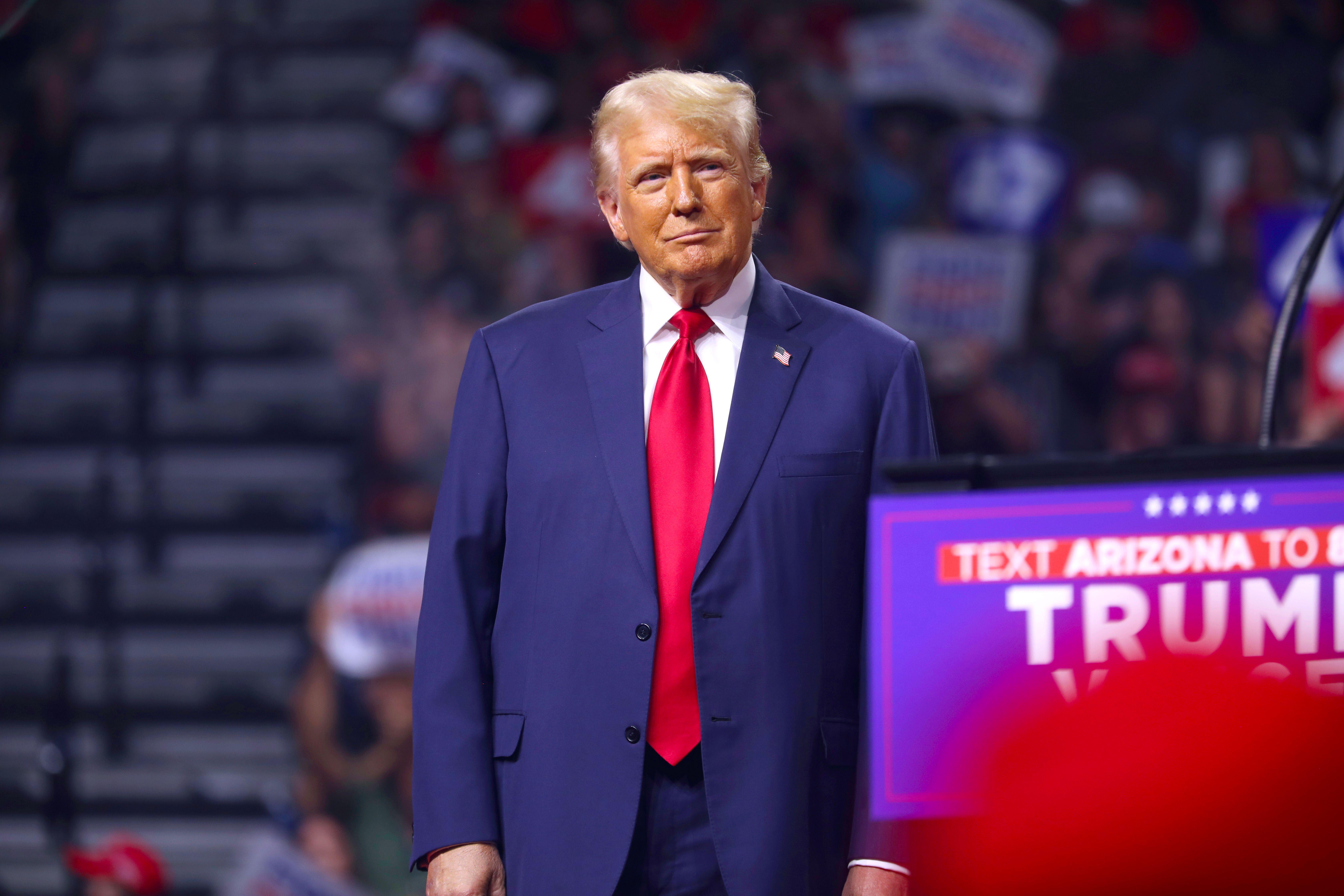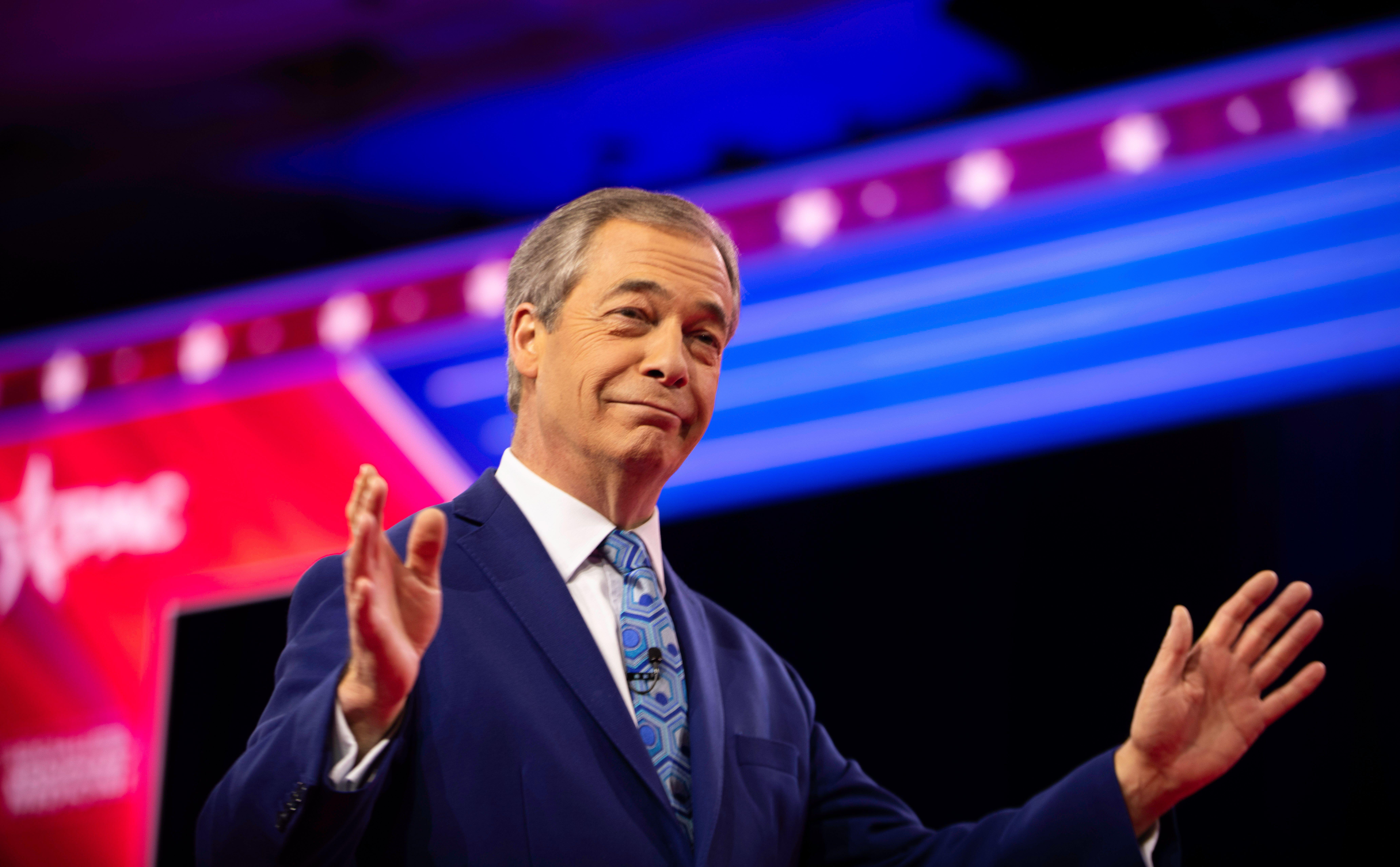Stars and Strife: How America embraced division to elect Donald Trump
It was an election campaign where the challenger narrowly survived an assassination attempt, where a faltering incumbent exited the stage after a calamitous TV debate, where “democracy was on the ballot”, and where the stakes were pitched so incredibly high as to be a fight for the very soul of America. But if this was a presidential race riven by division, by fear and by hate, then there was little drama in the final result. In the weeks leading up to the vote, commentators had cautioned against Donald Trump announcing a victory that wasn’t his to claim, yet in the end he did so legitimately in a contest that wasn’t even close.
As the country went to the polls, the tiny New Hampshire township of Dixville Notch became the first to declare, its six residents evenly split between Trump and Kamala Harris. But it was not to be an augury of what was to come. In the end, Trump swept to victory, winning key battleground states such as North Carolina, Georgia, Pennsylvania and Wisconsin. The man who was America’s 45th president will be its 47th – and the first convicted felon ever to occupy the Oval Office.
For the Democrats, it was a sobering night. Not only did the party of Franklin D Roosevelt, of John F Kennedy and of Barack Obama lose the presidency, it also lost control of the Senate. A floundering campaign had been energised with the coronation of Harris as the Democratic nominee after it became clear to even his staunchest supporters that Joe Biden was in no fit shape to run again for office. But the party once again underestimated the level of anger, the level of pain in a country still reeling from a historic cost-of-living crisis. It was a situation that Trump’s blunt populist rhetoric seemed uniquely suited to take advantage of.
It remains to be seen what will come from a second Trump presidency, but as the dust slowly settles on his landmark victory, it’s hard not to despair of a country which was presented with a candidate who has pledged to give himself unfettered power, who led an insurrection, who has been found to have committed fraud and sexual abuse, and opted to give him another shot. It’s difficult to see how this trajectory can end well for the United States.
But there are big questions too, for Europe, the Middle East and even the UK. While Prime Minister Keir Starmer was careful not to comment on another country’s election, First Minister John Swinney was less circumspect, telling journalists that American voters should back Harris after Trump had spoken out against Scottish independence. Swinney’s intervention led to a furious reaction from Trump’s business interests in Scotland, who called it an “insult”. Following Trump’s win, the first minister wrote to the president-elect, wishing him “every success”.

“The United States of America is Scotland’s most important market and source of inward investment, but it is much more than that. Many people of Scottish descent, including yourself, have worked hard to shape the United States into a global power,” Swinney said.
“We greatly appreciate the strong and lasting social, cultural and economic ties we have with the United States and are sure that these will continue to flourish during your presidency.”
While Swinney’s explicit support for Harris now looks ill-advised, it will be Foreign Secretary David Lammy who has the most work to do to build bridges after previously calling Trump a “racist and neo-Nazi sympathiser” as well as a “tyrant in a toupee”. Writing in Time magazine in 2018, Lammy said: “Trump is not only a woman-hating, neo-Nazi-sympathising sociopath, he is also a profound threat to the international order that has been the foundation of Western progress for so long.”
During the election the Trump team criticised Labour after UK activists campaigned for Harris in the US, accusing the party of “blatant foreign interference” in a filing with the Federal Election Commission. SNP members, including councillors and at least one former MP, also campaigned on US soil for the Democrats.
Reform UK leader Nigel Farage, himself no stranger to attending US political rallies, was among those to join in the condemnation of Labour. Farage, who earlier this year backtracked on claims he had been advised not to hold surgeries in his Clacton constituency and whose party says it is “too dangerous” for him to come to Scotland, was arguably one of the few UK winners out of Trump’s election. Pictured wearing a Make America Great Again baseball cap, the Reform MP attended Trump’s final election rally in Pennsylvania, where the Republican nominee described him as the “big winner” of the UK general election.
“What he is doing is sort of what we did a few years ago,” Trump told his supporters. “He’s doing a great job. He’s shaking it up pretty good over there.”
Indeed, Trump’s brand of populist invective has already shown itself to be effective on these shores too – one need only look back to the disaster that was Brexit for proof of that. The worry for centrists here and abroad is how to reach out to those increasingly disaffected parts of the electorate who inhabit a different world to the so-called metropolitan elite – many of them simply liberals facing the same economic pressures as everyone else – and are now more likely to get their ‘news’ from social media and podcasts than from mainstream media.
Polling published at the end of last month showed Reform, a party with no real footprint in Scotland before the general election, outperforming both the Lib Dems and Scottish Greens. According to analysis by Sir John Curtice, the party could secure as many as 12 MSPs at the 2026 Scottish parliamentary election, putting it just behind the Conservatives. And while you’d be hard pressed to find any current MSP expressing admiration for Trump (at least publicly) there’s evidence that the president-elect, whose mother was from Stornoway, is far from being a pariah among voters. Recent polling showed 25 per cent of Scots wanted Trump to win, a much higher proportion than in the UK as a whole (16 per cent) or other European countries such as France (15 per cent), Germany (14 per cent) or Denmark (seven per cent). It’s a figure which somewhat undermines the SNP’s image of Scotland as a paragon of Scandinavian progressiveness.
European leaders, already talking about drawing their near neighbours closer amid Trump’s threat to leave Nato, would do well not to dismiss the US as an outlier or a basket case, with the far right gaining ground in France, Germany and already in government in Italy. Earlier this year, it took an unlikely coalition of the centre and left and a campaign of tactical voting to block Marine Le Pen’s National Rally from securing a majority in France’s National Assembly. President Emmanuel Macron’s response was to install centre-right former Brexit negotiator Michel Barnier as the country’s new prime minister amid howls of protest from the left. Le Pen, whose party has its origins in the far-right French nationalism of the 1970s, could yet become France’s next president when the country goes to the polls in 2027. And in Britain, no doubt fearful of the influence of Farage and Reform, the Conservatives have tacked to the right with the election of Kemi Badenoch as the party’s new leader.
As for the United States, it remains to be seen what the future holds. Much has been made of the fact that many of the steadying influences who surrounded Trump during his first presidency are gone, replaced with libertarian ideologues who seek to re-carve the state – and its institutions – in his image. John Bolton, Trump’s hawkish former national security adviser, wrote former vice president Mike Pence’s name on his ballot paper this time around, while John Kelly, a retired Marine general who was formerly Trump’s White House chief of staff, called his former boss a “fascist” in the run-up to the vote.

Trump has promised to find roles in government for billionaire Elon Musk and former presidential candidate Robert F Kennedy JR, who has spread disinformation about vaccines and said chemicals in the water supply turn children transgender. Trump will also be surrounded by those who have helped support Project 2025, an ultra-conservative vision for reforming the machinery of government. The strategy, which the president-elect has attempted to distance himself from, proposes that the entire federal bureaucracy be placed under direct presidential control, allowing the president to directly implement policies in a number of areas. Another proposal is for the elimination of job protections for non-partisan civil servants, allowing them to be replaced by political appointees.
In May, a New York court found Trump guilty of falsifying business records relating to hush money paid to former porn star Stormy Daniels, but sentencing was delayed until after the election. While Trump faced the very real prospect of going to prison had he not won the presidency, the legal actions against him will now come to a halt. A separate ruling by the Supreme Court, now stuffed full of Trump appointees, recently gave former presidents a degree of immunity from prosecution for actions taken while in office, a decision that legal critics have said creates “catastrophic risks”. The historian Heather Richardson Cox called the court’s decision “the most important event in American history” which “overturned the fundamental principle of the United States of America”.
Trump’s inauguration as president will take place on 20 January – just over four years since he encouraged an angry mob to lay siege to the Capitol. In the years since he left office, the world has become a more dangerous place, with Russia’s invasion of Ukraine and the war in Gaza threatening to spill over into a wider regional conflict. Throughout much of the past century the world has looked to the United States in times of trouble as a beacon of hope. That era may now be finally drawing to a close.
Holyrood Newsletters
Holyrood provides comprehensive coverage of Scottish politics, offering award-winning reporting and analysis: Subscribe